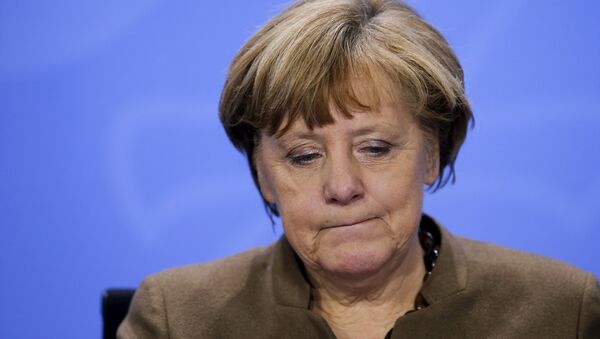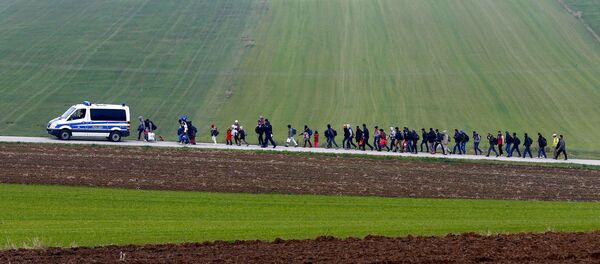Merkel admitted to being strongly pressured on the migrant issue. However, she insisted that the current course in Germany and other European countries to tackle the refugee crisis is the right one.
"My damn duty and obligation consists of finding a collective way for this Europe [to resolve the crisis]," she said in an interview with ARD Television.
She added that the ongoing crisis is an important phase in the history of Germany and the European Union.
The interview came on the same day a new poll was released revealing that only 11 percent of respondents in Germany said they did not want a cap on the number of migrants crossing the German border.
"Sometimes I feel desperate. Some things are going too slow. There are a lot of contradicting interests within Europe," Merkel said.
However, later on in her interview she reaffirmed her commitment to the German migrant policy, adding that the German constitution’s most sacred principle is that "human dignity is inviolable."
Merkel has continued to lose support and the trust of the population because of her open-door asylum policy. For example, a recent poll by the German commercial television channel N-TV showed only 46 percent of respondents supported Merkel, the lowest rating for the German Chancellor since 2011.
One of the factors contributing to Merkel's falling popularity is a wave of sexual harassment attacks against women by refugees across Germany which took place in the beginning of the year.
Merkel has repeatedly demanded a pan-European solution to the migrant crisis: a mandatory relocation of refugees. However, her demands have been shunned – particularly by Poland, Hungary, Slovakia and the Czech Republic.
However, Merkel has claimed the country would able to deal with the growing number of refuges, for many of whom Germany is the most desirable destination in Europe. In 2015, 1.1 million refugees crossed the border into Germany, and potentially more may come in 2016.




